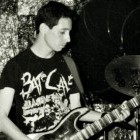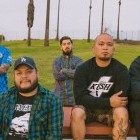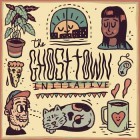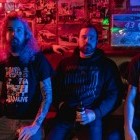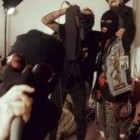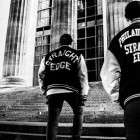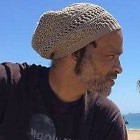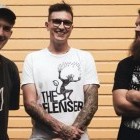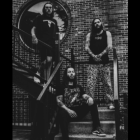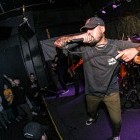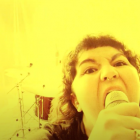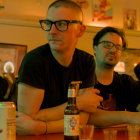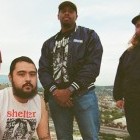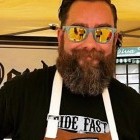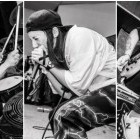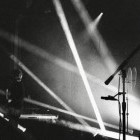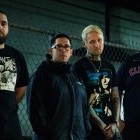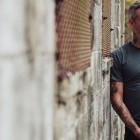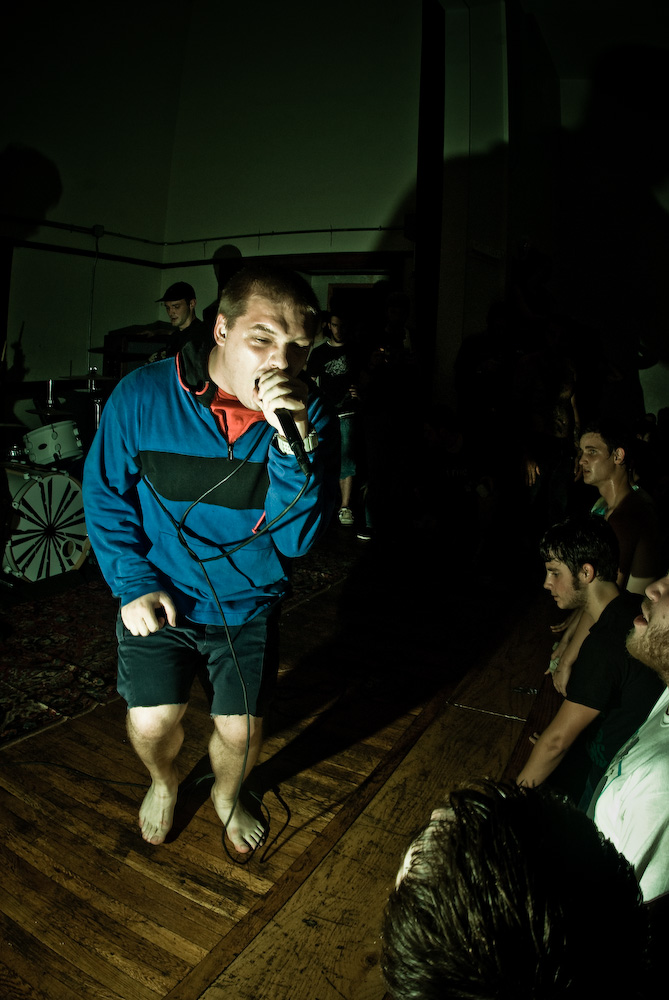
...The Beat Goes On was the record that truly made me a big Blacklisted fan. Released in November of 2005 by Deathwish Inc., the 13-track album clocks in at just under 24 minutes, which in junior high would have meant I'd just let the cassette auto reverse the second it ended so it played again. Remember Reign In Blood on tape?
But more importantly, though the songs on ...The Beat Goes On are short in length, they still manage to pack both musical and lyrical potency, a testament to the command Blacklisted had over their material. Vocalist George Hirsch's lyrics read poetic but never in some ambiguous or obtuse way, often looking inward in a critical way. It's grown-up hardcore, meant for people looking for something with more meat on the bone than just prime breakdowns and 2-step parts.
George is currently in a band with Blacklisted bassist Dave Walling I'm psyched on called Staticlone, but as they work on their LP, I bugged the singer to look back on ...The Beat Goes On, and he indulged me. It pays to know people.
Set the stage for where Blacklisted was before …The Beat Goes On was even recorded. How much was the band playing live, and how did the Deathwish Inc. connection happen?
Blacklisted was playing a lot. Touring constantly. The Deathwish connection came about via our part in the Dead Mans Hand split that they released. Before that, we were on Stillborn Records.
We were signed by a really great person over there (Jay Reason), but shortly after we did that split, if I remember correctly, he left the label. And we didn’t really have a connection with anyone over there at the time. So while talking to Deathwish, Jake [Bannon] said they were interested and some stuff got worked out from there. And we hit the road, hard.
I remember reading an interview years ago where [Blacklisted guitarist] Tim Smith said he and Shawn Foley [Blacklisted's drummer] wrote the music for ...The Beats Goes On together over the span of a few weeks in a jam room. What do you remember about the writing process?
I think Tim's memory of that is the truth. We didn’t have much time to make an album. We were really caught up in the whole “Make an album/Tour/Make an album” mindset, that continued on with the band for years. Also continuing on was writing albums in 2-3 week spans.
Tim and Shawn worked extremely hard on the album. It sounds careerist or whatever dirty word you can use, but we felt it was our opportunity. In years after, I kind of shunned the LP, and I really regret that. Looking back now, those two really had a huge task and weight on their shoulders and they carried it and delivered it way better than I did.
Tim switching to guitar and becoming the primary songwriter and Shawn having to fill the shoes of Zach Trotta, who in my opinion is one of the best hardcore drummers, must have been pretty stressful. I was too selfish and wrapped up in my own part to really recognize that.
We started tuning to C. I don’t remember Tim's reason? I know he really liked Turmoil and Buried Alive at the time. For me, tonally, I hoped we'd land in that dark murky sound that I loved from death metal, but still be just hardcore.
Did you have a specific vision of what you wanted to say on the album before you even wrote the lyrics?
Lyrically, I just knew I wanted to make something relatable but not so extremely personal that it can have an expiration date. I also wanted to stay in what was accepted as “hardcore lyrics."
I was afraid to be looked at as “poetic” or whatever else is used on people who write from a different perspective than being “stabbed in the back." I fumbled a few times. Scored a few times. Good effort.
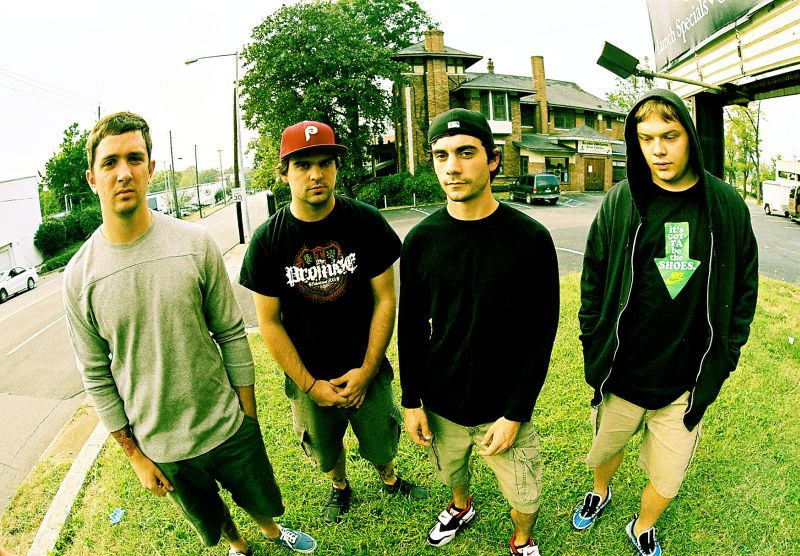
In a genre of music with endless posturing and so-called “keeping it real” nonsense, the album opens with “Tourist,” one of the most brutally honest songs you’ll find in hardcore. "A tourist among my family and friends / They all want to know what goes on inside my head / They're all happy in homes of their own / While I have nothing to call my own.”
Blacklisted was touring a lot. I found it really difficult. All ive ever wanted to do since I was a kid was play music and play shows. Then it happened, and I struggled with it, to say the least. I didn’t have a fixed address and no backup plan. I was just out on the edge of it all living, Which can be dark or romantic depending. But it was just reality. And I knew I wanted to encapsulate that somehow.
There was this reality that I could connect with people playing music, but when I came home I couldn’t connect with people I’ve known my whole life. I still honestly struggle with that to this day. Not to drag down the vibe but, what was going on in my head was being told I saved a stranger, but couldn’t reach someone I loved in time. It is something so hard to really put into words.
What did you family think about your decision to focus your energy on the band and touring?
I don’t really know how my family felt about my decisions. We all live separate lives. I'm sure they were happy to see me do something interesting.
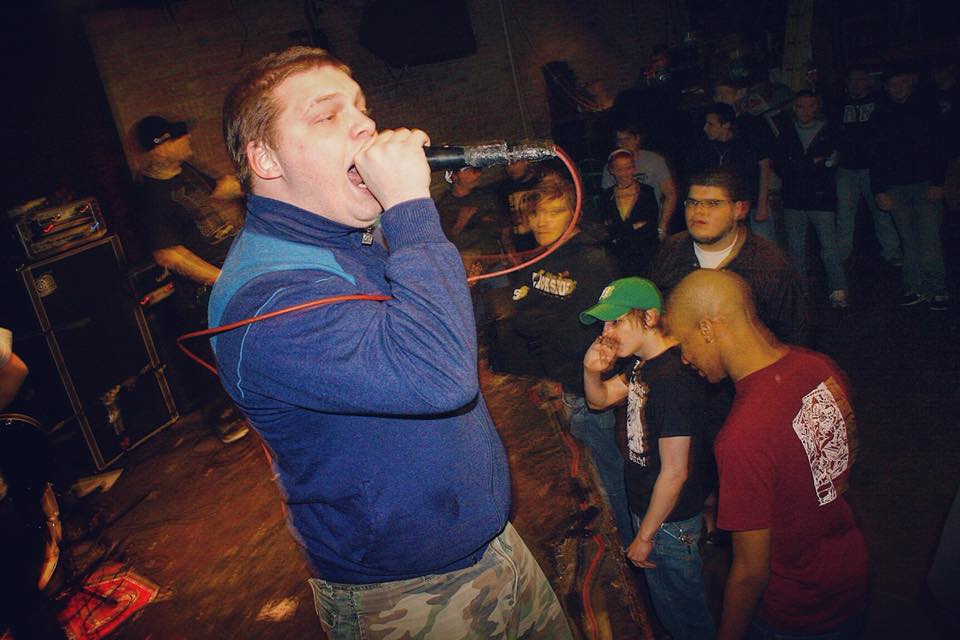
Keeping with the idea of hardcore lyrical tropes, the album features “Wolves at My Door,” which can be looked at as a classic “stabbed in the back” song that you referenced earlier in our chat. But your approach is far more interesting. Were those lyrics about someone in your life, or did you dig somewhere else for inspiration?
This song was me trying to take responsibility for allowing two really evil people back into my life, briefly. They went on to being the subject of the song that follows, “Bruising Serenade” and after me watching that unfold, and trying to save one of them, I realized they deserved each other and I needed to get out of dodge.
You have more command over your vocals on ...The Beat Goes On compared to the previous Blacklisted releases. How much of that was engineer Jim Seigel pushing you in the studio, and how much of it was just experience? I get the feeling that you’re extra hard on yourself when it comes to tracking?
Jim didn’t push at all. He just let me do my thing. I think it truly was just touring/experience. At that time I was extremely hard on myself. I felt like all my peers and bandmates were so far ahead of me in skill as far as musicianship, sound, lyrics, etc. etc. I felt like a complete fraud. So it was…… stressful.
I would be remiss if I didn’t ask you about the song “What’s Wrong With George?” The lyrics open with: "He hides his thoughts buried so deep inside,” and there’s also the lines, "He has reasons for everything / In his mind it's all justified.”
Was there a specific interaction that sparked the idea for that song, or was it simply calling yourself out? How tough was it to immortalize those lyrics on an album, especially your first one?
There wasn’t a specific interaction. Just a lifetime of loneliness. I never have a tough time calling myself out. Which is one of my problems, because it gets looked at as self loathing. But I never meant it to be, for me it’s just a human trying to figure out their way. Everyone has a different way.
It’s hard to be a person. I know now in 2024 we are swamped with this “self-care” and “mental health matters” sloganeering, but that was far from the case when '...The Beat Goes On' was written. And to be honest, it’s far from my life even now. So I don’t know, like I said, "What’s Wrong With George" was/is I’m just a human trying to find my way."
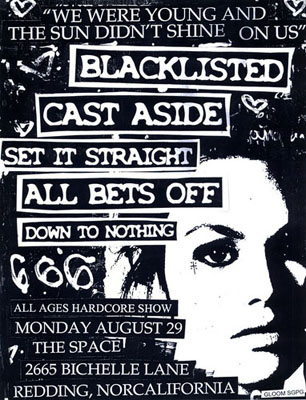
Do you have any specific memories about the recording sessions with Jim? Did anyone from Deathwish come to the studio to check in on things, or were you left to your own devices?
I have fond memories of recording with Jim. This isn’t about the beat goes on era, but when we recorded Our Youth Is Wasted there with him, he was really difficult to contact. We couldn’t get a number to call or an email to email.
I remember I asked Tim from American Nightmare about him because they had recorded there. So he put in the word and put us in contact with him. And when I told Jim it had been difficult he said “people find me when they’re ready." It felt like a secret society. Which it wasn’t at all. But I’ll romanticize it.
Everyone from Deathwish came to the studio and checked us out. They were very supportive of us. That’s the home team forever.
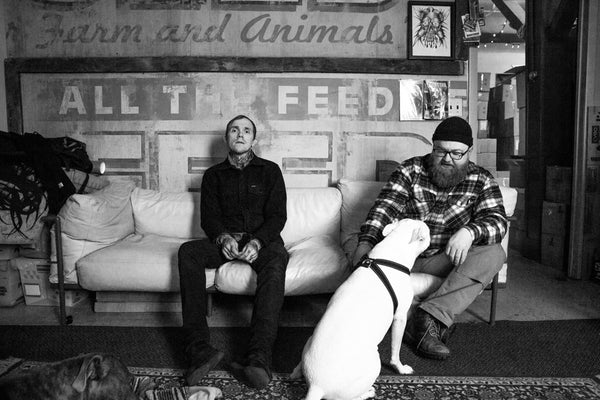
Musically speaking, “Brightest Son” is a ripper, but the lyrics feel especially potent. What can you share about your father and mother and how your upbringing informed the way you viewed the world at that point?
My upbringing felt like it took a lifetime. I wouldn’t revisit it for a single day. It unfortunately informs my world view to this day. I saw this quote from a musician where they wrote that when writing lyrics write positively even if it’s negative.
So at that time though I am talking about traditions and ambitions, they aren’t necessarily positive ones, if that makes sense. That song is actually really negative. A negative way of saying the most cliché of hardcore slogans: “I will never be like you."
Do you remember how you felt when you first heard the mastered version of …The Beat Goes On? Did it feel like a huge weight had been lifted?
I do. I remember feeling like it didn’t really sound like anything else at the time. And I was quite happy with that. I remember feeling like it was really dense. It had a lot of weight to it.
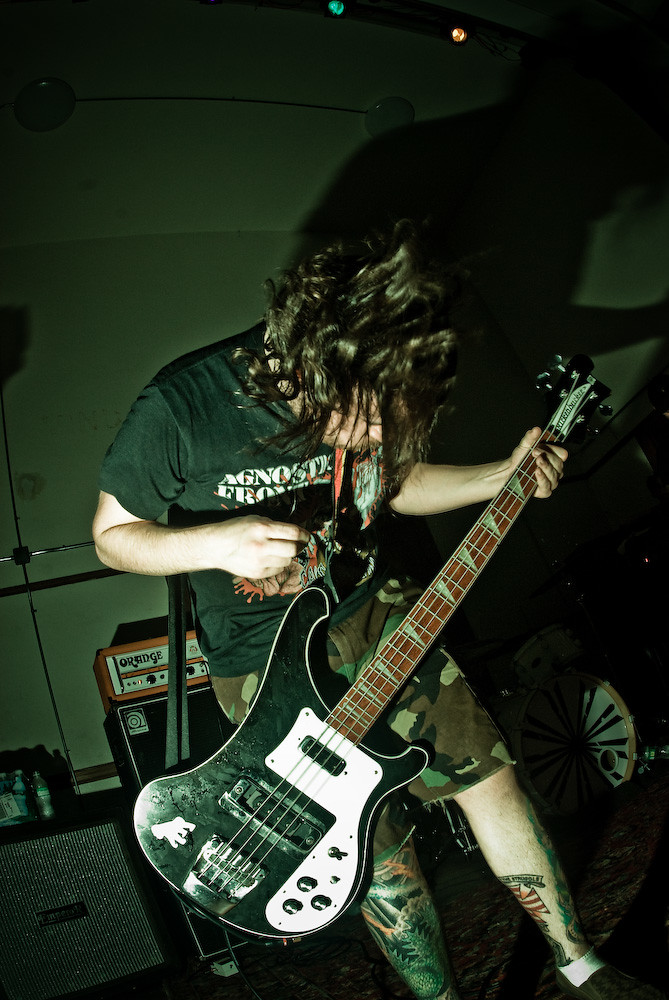
What do you remember about the public’s reaction to the album when it first came out? Do you pay close attention to that sort of thing?
I think people liked it. I didn’t really pay attention to that stuff. I did for albums we released after and always regretted it. But for this LP, I was out there living it.
Like I said above, out on the edge of it all, I'm trying to connect with people. It is and always will be the thing that motivates me to make music.
Of the songs on the album, which one do you think best captures Blacklisted at that point in the band’s history and why?
It would have to be “Tourist." It was the first song we wrote. Probably the best one. And it described everything that was happening.
***
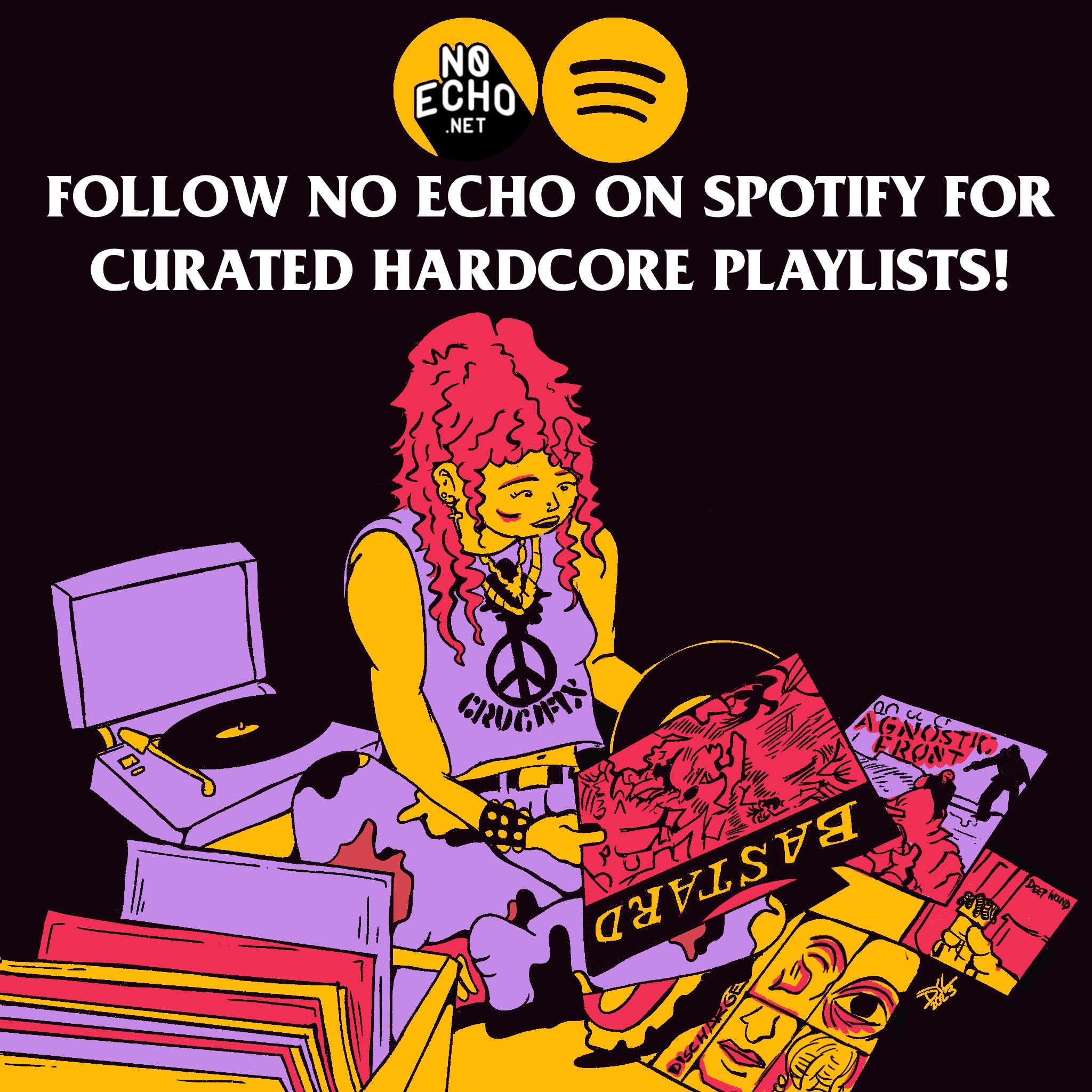
Tagged: 2000s hardcore week, blacklisted

